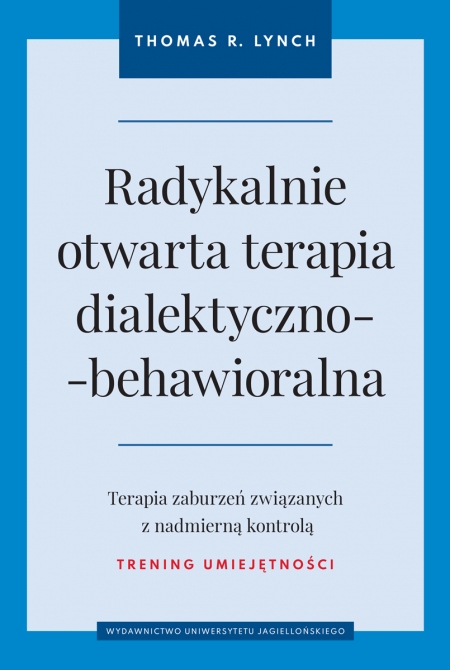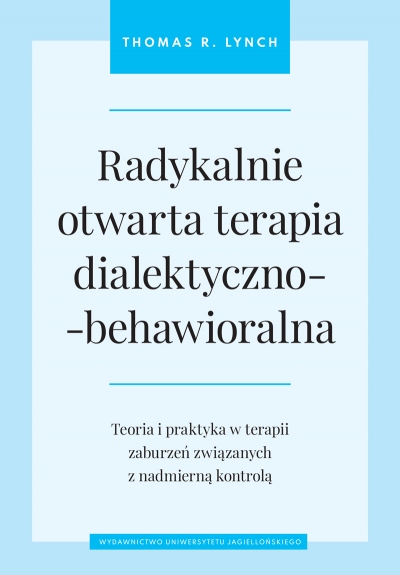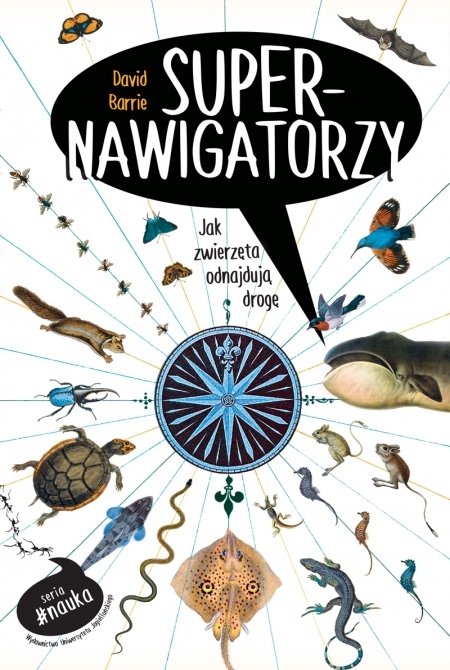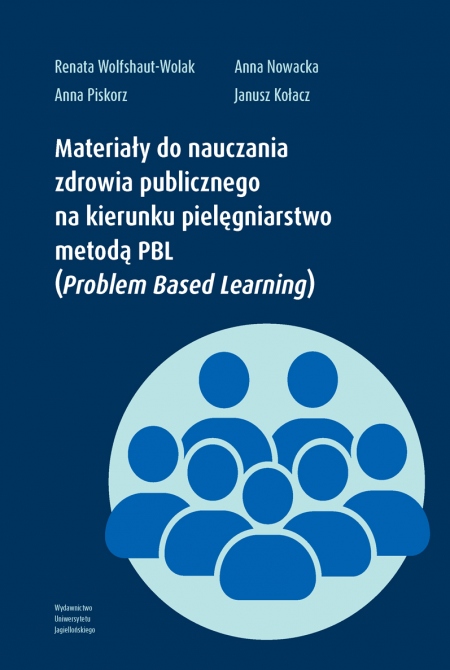
Radykalnie otwarta terapia dialektyczno-behawioralna. Trening umiejętności
Terapia zaburzeń związanych z nadmierną kontrolą.
Translation: Juliusz Okuniewski
Substantive consultation: dr n. med. Maria Gałuszko-Węgielnik
Series: Psychiatria i Psychoterapia
Pages: 704
Book format: 17 x 24 cm
Publication date: 2024
Release date: 15.05.2024
Book description
Radically open dialectical behavior therapy (RO DBT) is a groundbreaking, transdiagnostic treatment model for clients with difficult-to-treat overcontrol (OC) disorders, such as anorexia nervosa, chronic depression, and obsessive-compulsive disorder (OCD). Written by the founder of RO DBT, Thomas Lynch, this is the first and only session-by-session training manual to help you implement this evidence-based therapy in your practice.
About Author
Thomas R. Lynch, PhD, FBPsS, is professor emeritus of clinical psychology at the University of Southampton school of psychology. Previously, he was director of the Duke Cognitive-Behavioral Research and Treatment Program at Duke University from 1998-2007. He relocated to Exeter University in the UK in 2007. Lynch’s primary research interests include understanding and developing novel treatments for mood and personality disorders using a translational line of inquiry that combines basic neurobiobehavioral science with the most recent technological advances in intervention research. He is founder of radically open dialectical behavior therapy (RO DBT).
About RO DBT
RO DBT is based on the premise that psychological well-being involves the confluence of three factors: receptivity, flexibility, and social-connectedness. RO DBT addresses each of these important factors, and is the first treatment in the world to prioritize social-signaling as the primary mechanism of change based on a transdiagnostic, neuroregulatory model linking the communicative function of human emotions to the establishment of social connectedness and well-being. As such, RO DBT is an invaluable resource for treating an array of disorders that center around overcontrol and a lack of social connectedness—such as anorexia nervosa, chronic depression, postpartum depression, treatment-resistant anxiety disorders, autism spectrum disorders, as well as personality disorders such as avoidant, dependent, obsessive-compulsive, and paranoid personality disorder.
Language
Polish
Original title
The Skills Training Manual for Radically Open Dialectical Behavior Therapy: A Clinician's Guide for Treating Disorders of Overcontrol
Original language
English
Edition
first
Authors
Thomas R. Lynch
Translation
Juliusz Okuniewski
Cover design
Jan Paluch
ISBN: 978-83-233-5335-5
Country of producer: Poland
RECOMMENDED BOOKS
NEW BOOKS

Radykalnie otwarta terapia dialektyczno-behawioralna. Trening umiejętności
Terapia zaburzeń związanych z nadmierną kontrolą.
Radykalnie otwarta terapia dialektyczno-behawioralna. Trening umiejętności
Terapia zaburzeń związanych z nadmierną kontrolą.
Choose chapters to buy:
Order value:
0.00 zł
























